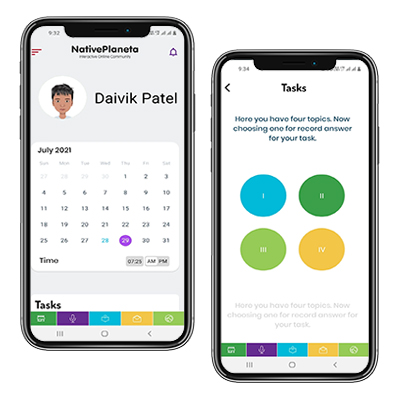
- Alex S.
- 07,Jul 2022
- Technology
Situation # 1: Being a Successful Programmer
No matter how good you are at programming, someone will always delegate tasks to you and you may not agree with what was delegated in all aspects, and you should communicate this effectively. Developers (usually) work in teams which implies that other people are also involved in the work and that relationships need to be set up and nurtured (not just code). There will be some bugs in the solution, or there will be some conflicts in the team, with which the programmer will have to fight and win… At this point, it becomes quite clear where this story is going. It is obvious that when working as a programmer, you are not an isolated cell but a part of the organism. In addition to developing technical skills (hard skills), you must develop certain soft skills if you want to work successfully with your superiors, team members, and clients. Of course, if you want to be recognized as someone who contributes to the success of the organization in which you work, and finally, to be successful in your career path. In order to boost (i.e. improve) your ability to lead yourself and progress as a programmer, you will need knowledge and skills such as communication, teamwork, relationship building, planning, and organizing.Situation # 2: A Programmer Who Is Successful in a Leadership Position
Oh, great, you are an excellent programmer. You even mastered the complex world of email rendering such as those who built an HTML email template from scratch. So, now you are rewarded with a leadership position? It seems simple and logical if we consider leadership to be a natural continuation of a successful programmer’s career. The reality is quite different. Being a programmer and being a leader are two completely different roles. Absolutely. To take on a leadership role, you will need a completely different set of skills and knowledge (in other words – competence) than in the role of a programmer. Of course, if you have technical expertise (programming) it will be easier for you to understand the nature of the work your people do in the team, and you will more effectively assess the scope of work that needs to be done and how best to do it – and add value to your leadership role. However, moving from the role of a programmer to the role of a leader is one of the biggest career leaps (and changes) that can happen to you. That change of role requires a big change of mindset (i.e. the way you look at the world around you and yourself in that world), and that primarily means that you now need to bring results by managing the work of other people, through others. In your previous position as a programmer, no matter how successful you were, you brought results by managing only your work and personally performing the tasks delegated to you. Now to be successful in a leadership position, the situation requires a completely new set of knowledge and skills such as leadership thinking and knowledge of leadership areas of accountability, leadership ethics, assessment of other people’s willingness to perform a task, assessment of a person’s development potential, planning other people’s performance, delegation, giving feedback, guiding other people’s growth and career development… If you are not ready (well informed above all) for what you can expect in your first leadership position, and you are not motivated (or become demotivated along the way, when you understand what leadership is) then leading people can become a very tedious process.How Well-run Companies Cope With Such Challenges
Well-run companies strive to address these challenges before they arise. On the other hand, sometimes you need to respond quickly to change, and given the speed of change in the IT industry and the agility of teams – we find that this is OK. What do these companies do? First, they focus on the most important career transition (change) of their people, which is the transition from the level of individual contributors (team members who bring results by managing their own work) to the level of first-line leaders (first leadership position in, say, flat hierarchical structure). They inform them about their accountability areas (note: accountability is not the same as responsibility) and empower them to gain the competencies needed for that leadership position through their authoring (or similar) programs. In parallel, they get the opportunity for one-on-one expert consultations on the topic of leadership, and they recognized this as the most effective way of learning through personal experience and working on examples from their practice. The natural progression is participation in further development programs that provide them with advanced leadership competencies, also accompanied by one-on-one support in the form of development sessions, in the form of consultation, mentoring, or coaching. On the other hand, colleagues who produce results by managing their own work (individual contributors), should gain a basic picture of what leadership is before they even take on that role and master the knowledge and skills of self-management. The development programs of well-run companies are tailor-made, i.e. tailored and aligned with your needs while integrating the world’s best business practices.How Can You, as a Programmer, Overcome the Obstacles of Leadership on Your Own
Finally, if such programs are not available to you at this time, here are tips you can use for personal success, whether in self-management or in leading others:-
Self-awareness
That is the first step. Think and analyze where you are at the moment and where you want to be in a professional sense. Then think about what strengths you have and what can lead you to your professional goal, and what are your biggest areas for development. Be as objective as possible and ask for feedback from your colleagues and superiors. This will help you to objectify, to have a more realistic picture of yourself. -
Proactivity
Then be proactive in personal growth. Do not wait for your manager or company to offer you internal or external development opportunities. Read books and articles on your own. Take one of the many online courses currently available to you. Believe us when we say that some of them really have high-quality content. Go to seminars and connect with other experts. Ask them for opinions and actively listen. Look for a mentor at work. Official certification in a particular skill/domain is just the icing on the cake. Most of your growth has already taken place before that. In fact, most of your personal growth and development takes place every day, during working hours, when you are performing a certain task or watching others do it. The thing is, you just have to think consciously about what is going on, draw lessons you have actually learned, and think about where you can apply them in the future. -
Be Clear in Your Expectations
Say clearly and loudly what your expectations are, and not just in terms of salary. As a salary or bonus can only make you happy for a while (and for quite a short time), in the end, it will not be enough. So you need to focus on your expectations in the context of growth and accountability, as well as relationships at work. Find the answers to these questions: What do you want to develop further in? Where do you see yourself? What will you dedicate yourself to in achieving your goals? What support do you need from your manager and company to achieve these goals? What work relationships do you want to improve and why is it important to you? What will you do to have a stronger and more meaningful relationship with your colleagues? Remember, synergy cannot be achieved without team cohesion. You can talk about this in your performance appraisal interview, but talking about it once a year is definitely not enough. You should address these issues in your regular conversations (or as it is popularly called – meetings) with your manager. We call these one-on-one meetings. In case you do not have regular such meetings with your manager that he/she has scheduled, then you should proactively start a conversation with him/her on these topics – that, if you want to really manage your career and personal satisfaction.
Conclusion
To summarize, ownership of your career and personal growth is in your hands. Your manager and company can be there to help you, but you are the ones who determine the direction and pace at which the activities will take place. It is just a question of whether you are aware of it and committed to career management or waiting for it to happen… Whether you want to shine as a programmer or be a programmer who is very successful as a leader, or something third… it is up to you! We want and wish you to reach your full potential…Note
If you are planning to have your own mobile application, website, custom web app or have any type of query or concern regarding its concept, technical know-how, the best way to get it done then don’t hesitate to contact us at alex@igexsolutions.com and we will provide you a free of consultation.
Skype: alex_39799
Telegram : igexsolutions
WhatsApp : +91-635-393-7367
Web Portfolio
Mobile Portfolio
Categories
What good is an idea if it remains an idea? Let's put efforts together to give it a look of Website or Mobile Application.
Let’s Start a discussion









